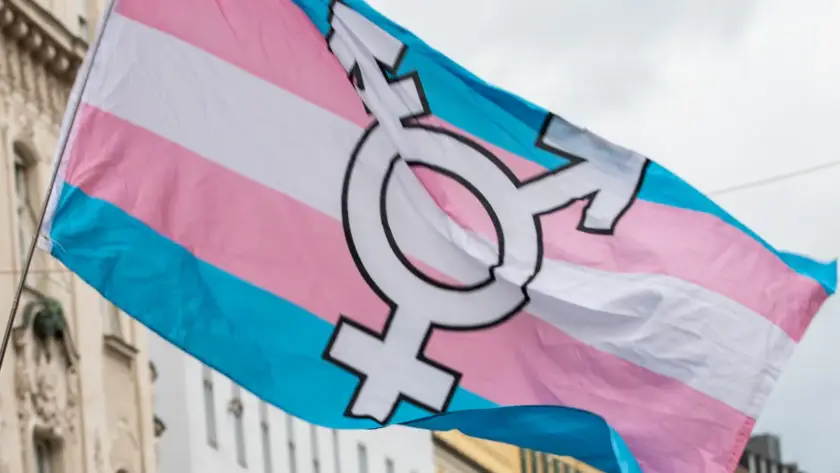Earlier today, California made a surprising announcement – from now on, the entire month of August will be dedicated to celebrating and highlighting transgender history in the state. Governor Newsom signed a proclamation declaring “Transgender History Month” starting this August, making California the first state to dedicate a full month to transgender remembrance and recognition.
The announcement has left some residents confused, as August does not have any particular significance in transgender history. Many are wondering why this new observance was not placed in June, during LGBTQ Pride Month, or in November, when Transgender Day of Remembrance takes place. The timing of California’s Transgender History Month during the month of August has puzzled citizens across the state.
While the reasoning behind choosing August remains unclear, California is making transgender visibility and rights a priority with this move. The month-long commemoration aims to uplift the stories and struggles of transgender individuals throughout history. Activists hope that setting aside time for transgender education and celebration will lead to greater awareness and acceptance statewide.
Though the timing may seem odd, California’s new Transgender History Month represents a major milestone for the transgender community. The declaration shows that better representation and more robust legal protections for transgender people are on the horizon. This groundbreaking development will certainly prompt debate and discussion now, but in the years to come it may simply be accepted as the new normal.
Is Transgender History Month Overkill?
While California’s move to dedicate August as Transgender History Month is new, the LGBTQ community already has two other months set aside for commemoration and celebration – June as Pride Month and October as LGBTQ History Month. They also have Transgender Day of Remembrance in November.
Pride Month in June pays tribute to the 1969 Stonewall Riots, seen as the catalyst for the modern LGBTQ rights movement. Pride events celebrate how far LGBTQ rights have come while also drawing attention to the continued work needed for equal treatment. Similarly, LGBTQ History Month in October honors pioneering figures, activists, and events in queer history, highlighting the community’s past struggles and ongoing fight for acceptance.
With Pride Month and LGBTQ History Month already established on the calendar, some are questioning if having a third commemorative month specifically for transgender history is overkill. They point out that other marginalized groups in America are not receiving nearly the same level of attention and “celebration” months.
While transgender visibility and rights are important causes worthy of focus, some ask if three months devoted to LGBTQ commemoration is excessive compared to heritage months recognizing the history and contributions of other minorities. They argue the transgender community is already included in the scope of June and October’s LGBTQ celebrations.
With June highlighting queer pride and October serving as LGBTQ history month, there are valid concerns that designating August as Transgender History Month may be unnecessary. While seemingly well-intentioned, the move does raise questions about equality and proportional representation.
Glorification Of Being Transgender Affecting Children & Teens
While California’s designation of August as Transgender History Month aims to promote visibility and acceptance, some are questioning whether the increased focus could have unintended impacts. Parents in particular have voiced concerns about the impact on children and teenagers who are in critical stages of developing their identities and understanding gender.
Advocacy groups encourage age-appropriate transgender education, arguing it reduces bullying and fosters compassion. However, some parents worry extensive discussions about gender identity and transitioning at young ages could potentially confuse kids who are already grappling with physical and social changes during puberty. They feel lessons should encourage kids to accept their bodies and focus less on identity labels they may later change.
Additionally, some medical experts caution that teens experiencing normal puberty struggles could mistakenly believe they are transgender and should medically transition. They advocate comprehensive mental health screenings prior to life-altering procedures on minors.
Proponents maintain transgender visibility encourages acceptance, decreases suicidal ideation, and allows access to medically necessary care. Yet even within the LGBTQ community, there are complex views on how much spotlight transgender issues should receive compared to others’ rights and histories.
Tax Dollars & Insurance Coverage For Gender Assignment Surgery
Gender reassignment surgeries are sometimes covered by Medicare, Medicaid, and private insurers. The cost for gender reassignment procedures is sometimes covered because medical guidelines recognize gender dysphoria as a medical condition that may require treatment, which can include surgery.
There are also concerns that some necessary procedures like cancer treatment, joint surgery etc are denied coverage despite clear medical necessity, while gender surgery gets covered more readily.
Up until recently, tax dollars were being used to cover gender reassignment surgeries in some cases under Medicare and Medicaid. However, on May 17, 2023, the Senate introduced the End Taxpayer Funding of Gender Experimentation Act, which prohibits federal funds from being used for gender transition procedures.
Supporters of this legislation argue that the surging number of gender reassignment procedures performed in the United States, especially on minors, is alarming and should not be paid for with public funds. Opponents counter that gender-affirming care is medically necessary for many, and this ban limits access to vital healthcare.
The debate underscores the divisive views around public funding for transgender medical procedures, especially amidst claims that the current number being performed is concerning to some. Passage of this law would mark a major change, stopping federal coverage of any transition-related care.
In Conclusion:
California’s designation of August as Transgender History Month has sparked discussion about balancing equality, education, children’s interests, and parental rights. While created with good intentions to promote visibility and acceptance, the move raises questions about the appropriate extent of transgender prominence compared to other groups. There are also concerns from parents about the impacts on children during their formative development.
Transgender advocates argue positive representation and equal rights are long overdue and will save lives. Critics counter that excessive focus could inadvertently pressure youth or lead to medical overreach. Complex factors underlie suicide rates.
Regardless of one’s views, the conversation ignited by this historic month dedicated to transgender remembrance provides an opportunity. If approached with open hearts and minds, we can build toward a society of greater inclusion, knowledge and care. But we must do so together, balancing diverse needs, experiences and beliefs.





